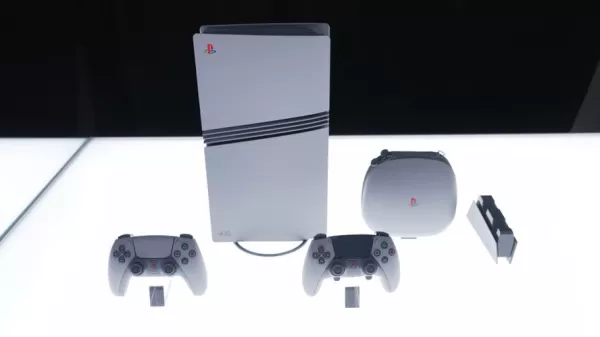Sony is contemplating price increases for its products due to the significant impact of tariffs on its business, as revealed during its financial results for the year ending March 2025. In an investor Q&A session, Sony's Chief Financial Officer, Lin Tao, highlighted that the tariffs could cost the company around 100 billion yen (approximately $685 million), primarily affecting its hardware manufacturing sector, which includes the PlayStation 5.
Tao indicated that Sony might pass some of these costs onto consumers by raising the prices of its hardware. "In terms of the tariff, we are not just simply calculating the simple tariff to come up with 100 billion yen, but thinking about the currently available information, and also looking at the market trend, we may pass on to the price, and also shipment allocation," he explained during the webcast.
Sony's CEO, Hiroki Totoki, also addressed the issue, specifically mentioning the PlayStation. He suggested that producing consoles in the U.S. could be a strategy to circumvent tariffs. "These hardware of course can be produced locally," Totoki said. "I think that would be an efficient strategy. But PS5 is being manufactured in many areas. Whether it’s going to be manufactured in the U.S. or not, it needs to be considered going forward. We are not in such a critical situation."
Analysts have speculated that Sony might follow the lead of Nintendo and Microsoft by increasing game prices to $80. There is also speculation about a potential price hike for the PS5 family of consoles, particularly the upcoming PS5 Pro. This has led some consumers to purchase the console preemptively.
Daniel Ahmad, director of research and insights at Niko Partners, noted that Sony has already raised console prices in certain regions, but the U.S. might see similar adjustments. "Sony has raised the price of its console multiple times outside the U.S.," he said. "There is a reluctance from both Sony and Microsoft to raise prices in the U.S. given the size and importance of the market when it comes to console sales. That being said, we would not be surprised to see Sony follow suit with price increases on the PS5 in the U.S."
James McWhirter, a senior analyst at Omdia, pointed out that the PS5's production in China makes Sony vulnerable to U.S. tariffs. He noted that a significant portion of console sales occur in the fourth quarter, giving Sony and Microsoft some time to use existing inventory. "PS5 hardware is predominantly manufactured in China, exposing Sony's supply chain to greater risk from tariffs originating from the U.S.," McWhirter said. "Yet what we consistently observe in the console market is that up to half of consoles are typically sold during Q4, the final quarter of the year. This bought both Microsoft and Sony more time to rely on existing inventories. In 2019, consoles were granted an exemption from tariffs on goods from China, but this ruling did not come into effect until August."
With Microsoft recently adjusting its prices, the pressure is on Sony to make similar moves, particularly in the U.S., the world's largest console market, which has historically been less affected by price changes, except for a $50 increase in the PS5 Digital Edition in late 2023.
PS5 Pro 30th Anniversary Edition: 14 Close-Up Photos That Show Off All Its Details

 View 14 Images
View 14 Images


















